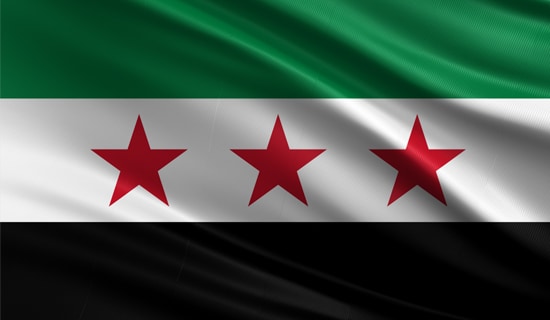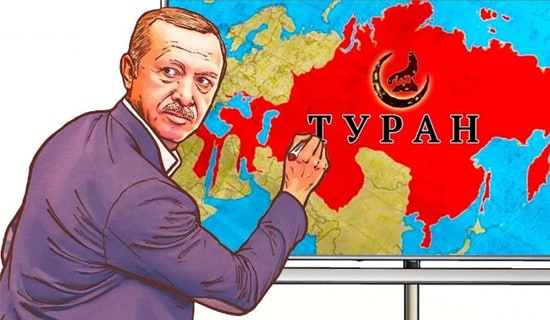Following the deadly terror attack in the St. Petersburg Metro, Russian media focused on whether the authorities would clamp down on civil freedoms. Some commentators from the opposition also accused Russian President Vladimir Putin of profiting from the terror attack, noting that the Russian government was in turmoil over the past weeks after Russian opposition leader Alexey Navalny's report regarding Russian Prime Minister Dmitry Medvedev's extensive property holdings and the March 26 anti-corruption demonstrations.
Russian media outlet Gazeta.ru pointed out that "the excessive propaganda of the recent years has drastically diminished the trust in the official information," therefore even if there is good reason to tighten security in the wake of the St. Petersburg attack, there is not much belief that this is really necessary and that those accused by the media, as the responsible for the attack are really the ones to blame."
22-year-old Akbarjon Jalilov, a Kyrgyz-born Russian citizen, is believed to be the martyrdom bomber in the St. Petersburg Metro attack. On April 7, the Russian media outlet Rbc.ru reported that eight suspects had been detained in connection with the bombing.[1] The terror attack left 13 dead and 50 wounded.[2]
It is worth noting that, on April 4, the Russian news agency Ria.ru reported that two traffic police officers in Russia's southern city of Astrakhan were killed by a group of Islamists.[3]
Following are political commentators' reactions to the St. Petersburg terror attack on April 3, 2017:

Terrorist attack in St. Petersburg (Vk.com/oldlentach)
Human Rights Lawyer Chikov: The Authorities Will Make More Severe Laws After The Attack
Gazeta.ru columnist Andrey Kolesnikov: "The security of common citizens will be jeopardized even more by those responsible for securing the self-preservation of the authorities."
(Gazeta.ru, April 4, 2017)
Leading human rights lawyer Pavel Chikov: "[Making more severe laws] is a distinctive reaction of the authorities in any internal public incidents, thus new legislation is probable."
(Kommersant.ru, April 3, 2017)
Yabloko party representative Emilia Slabunova: "This is an awful tragedy, but if we talk about the political consequences then the situation serves the authorities: it allows stirring up the hysteria further underlining that the enemy is not only around our borders but is amongst us... We may expect that the authorities will refrain from authorizing any public mass events".
(Kommersant.ru, April 3, 2017)
President Of The Center For Political Technologies: The Consequences Will Be Just Technical
Igor Bunin, president of the Center for Political Technologies: "The consequences [of the attack in St. Petersburg] will be technical – from now on the security services will check metro passengers more tightly. There will be no repressive consequences against the population – it's not the time for more severe laws, but time to look for technical measures to hamper terror."
(Mk.ru, April 3, 2017)

Anti-terror rally "Together Against Terrorism" on April 8, 2017. (Vk.com/oldlentach)
Gazeta.ru: 'There Is A Good Excuse To Tighten The Situation, But There Is Little Trust That This Is Really Necessary'
Russian media outlet Gazeta.ru: "The debates regarding corruption will be substituted by the discourse on security. It's obvious that when people are blown up it's not the right time to talk about officials' personal properties... The problem is that the excessive propaganda of the recent years has drastically diminished the trust in the official information. So, it seems that that there is a good excuse to tighten the situation, but there is little trust that this is really necessary and that those pointed out by the TV as the responsible for the attack are really the ones to blame."
(Gazeta.ru, April 3, 2017)
Russian Writer Shenderovich: 'The First Thought Is: What Happened Was, At Least, Very Timely For [Putin], Isn't It?
In an op-ed, titled "We're Quietly Advancing Towards 2018 [Presidential Elections], Preparing The Ground," renowned Russian writer Victor Shenderovich wrote in the independent media outlet Echo.msk.ru: "It is known that the worst time for the truth is when anything can be true.
"It is unknown, who had prepared and perpetrated the blasts in St. Petersburg, but Putin's reputation is fully established, and the first thought is: what happened was, at least, very timely for him, isn't it? Full-scale change of agenda awaits us: struggle with terrorism, don't change horses in midstream, all must unite against the world evil etc... We are slowly advancing towards 2018, preparing the ground."
(Echo.msk.ru April 3, 2017)
Russian political analyst Andrey Piontkovsky wrote an op-ed, titled "He Is The One Who Blew It Up. No One Else," accusing the Russian President Vladimir Putin to profit from the attack. The article was published in the opposition media outlet Kasparov.ru:
"For more than 2,000 years, all lawyers in the world, who were brought up on the traditions on the Roman law, ask themselves when investigating a crime: Cui prodest? [Whom does it profit?]
"There is a person, and you all know this person, to whom the terrorist act in St. Petersburg is extremely beneficial. Facing the unexpected, for him, scale of protest from widely different strata of Russian society, he views salvation in tightening the screws and in sharp increase of suppressions.
"The bloody trail of this person's credit history runs from blowing-up houses in Moscow, Volgodonsk [in 1999; together with the Dagestan War, the bombings in Moscow and in Volgodonsk led Russia into the Second Chechen War], and the attempt to blow-up [an apartment block] in Ryazan [in 1999], where he was caught red-handed. The NKVD [The People's Commissariat for Internal Affairs, a joint law enforcement agency of the whole Soviet Union] major repeats himself with no talent at all.
"Yesterday, he had already planned some murky 'Reichstag Fire' in the Red Square. The provocation failed [On April 2, anonymous organizers in social networks called the Russian youth to attack the Kremlin with Molotov cocktails, under the slogan "Burning the Reichstag." All opposition groups denied that it was their initiative. Very few young people came with Molotov cocktails, and disputed with pro-Putin youth. Few were arrested. The Russian opposition thinks that the authorities are behind the anonymous organizers.]...
"PS: Kissinger, a 93 years old prostitute kept by him [i.e. Putin], had recently called him, sycophantically, a Dostoyevsky hero. Who, I wonder: Smerdyakov [a villain character of 'The Brothers Karamazov'] or Verkhovensky [a villain and master conspirator in the novel 'The Demons']?"
(Kasparov.ru, April 4, 2017)





